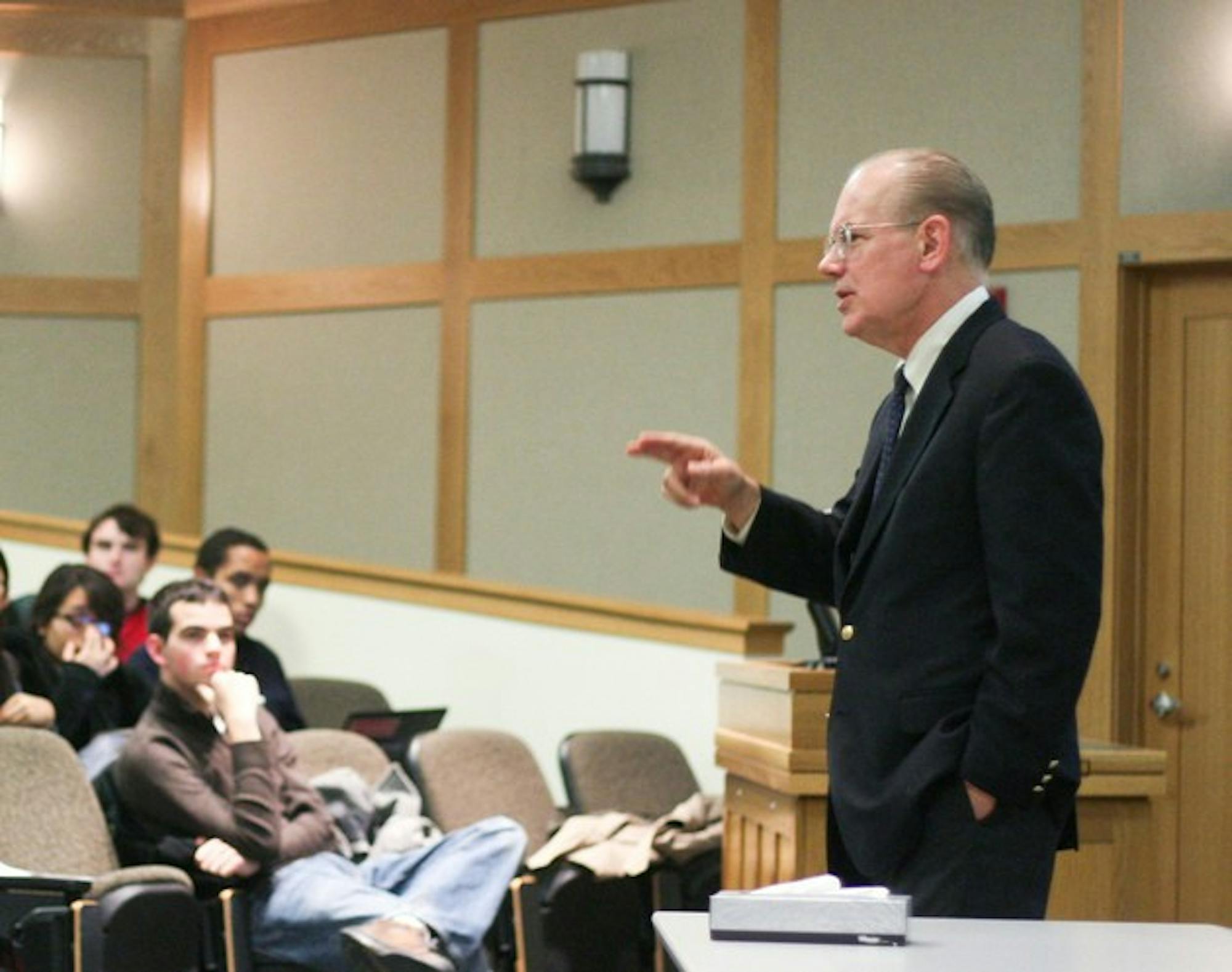Mearsheimer's speech, "Why China Can't Rise Peacefully," is the first in a five-part lecture series on the rise of China, sponsored by the War and Peace Studies program of the John Sloan Dickey Center for International Understanding.
Mearsheimer is a leading proponent of offensive realist theory in international relations, which blames international security conflicts on the anarchy of the global political system. He said his theory predicts that China will become more aggressive and attempt to turn its economic strength into military might.
Mearsheimer explained that China will attempt to become a "regional hegemon," the undisputed power in its part of the world, and will not tolerate meddling by an outside actor, such as the United States.
He compared China's future course of action to the way the United States extended its influence over the western hemisphere in the 19th and 20th centuries.
"China is going to imitate the United States," he said. "China is going to try to dominate northeast Asia the way we dominated the western hemisphere, and they'd be fools not to."
To support his prediction, Mearsheimer laid out the basic tenets of offensive realism and explained how they apply to the situation in China. The international stage is an essentially anarchic system, he said, where no state can be sure of other states' intentions and no higher authority exists to adjudicate conflicts.
The only way to ensure safety is to become a regional hegemon, because this allows a state to remain secure enough in its own territory to project its power elsewhere.
"The best way to survive in this system is to be the biggest and baddest dude on the block," he said. "Nobody fools around with Godzilla."
No regional hegemon wants other states in the region to gain power, because this threatens its own security.
"You want to dominate your region," Mearsheimer said, "And you want other countries to focus on their neighborhood so they don't go messing in your neighborhood."
Mearsheimer described modern-day China as a military "paper tiger," but said that in 20 or 30 years it will be capable of challenging the United States.
Other states in Asia, including India, Japan and North Korea, are already taking steps to counter China's growing power, Mearsheimer said.
"India exploded a bomb in [19]98 because of China," he said, adding that at the time, the U.S. believed India was threatening Pakistan.
The need for cooperation in the Middle East has lead the United States to avoid antagonizing China on issues such as Taiwan's independence, Mearsheimer said in an interview with The Dartmouth.
"If [the Sept. 11 attacks] had not happened, I think the United States-China relations over the last eight years would have been much rockier," Mearsheimer said, noting that the Bush administration had initially proposed a harsher stance on China.
Mearsheimer dismissed the idea that economic integration of China with the rest of the world would prevent it from becoming belligerent. Noting that Europe prior to World War I was also economically integrated, Mearsheimer said that the majority of Chinese citizens with whom he spoke agreed with his analysis.
"Security concerns often trump economic concerns," he said.
He pointed to the presence of nuclear weapons as a factor weighing against full-scale war between China and the United States.
"There's no question that nuclear weapons are a force for peace in the future of Northeast Asia," he said.




